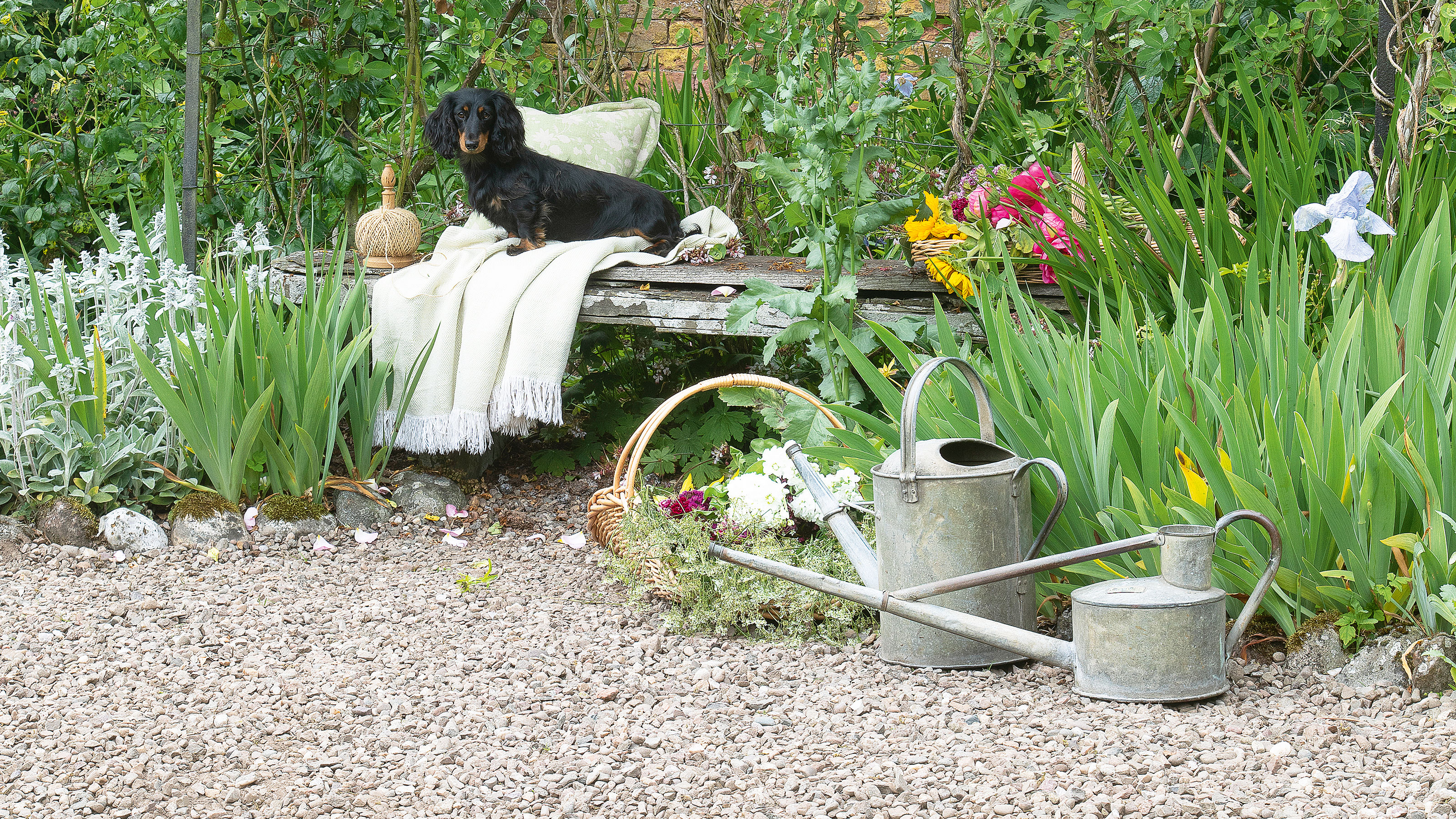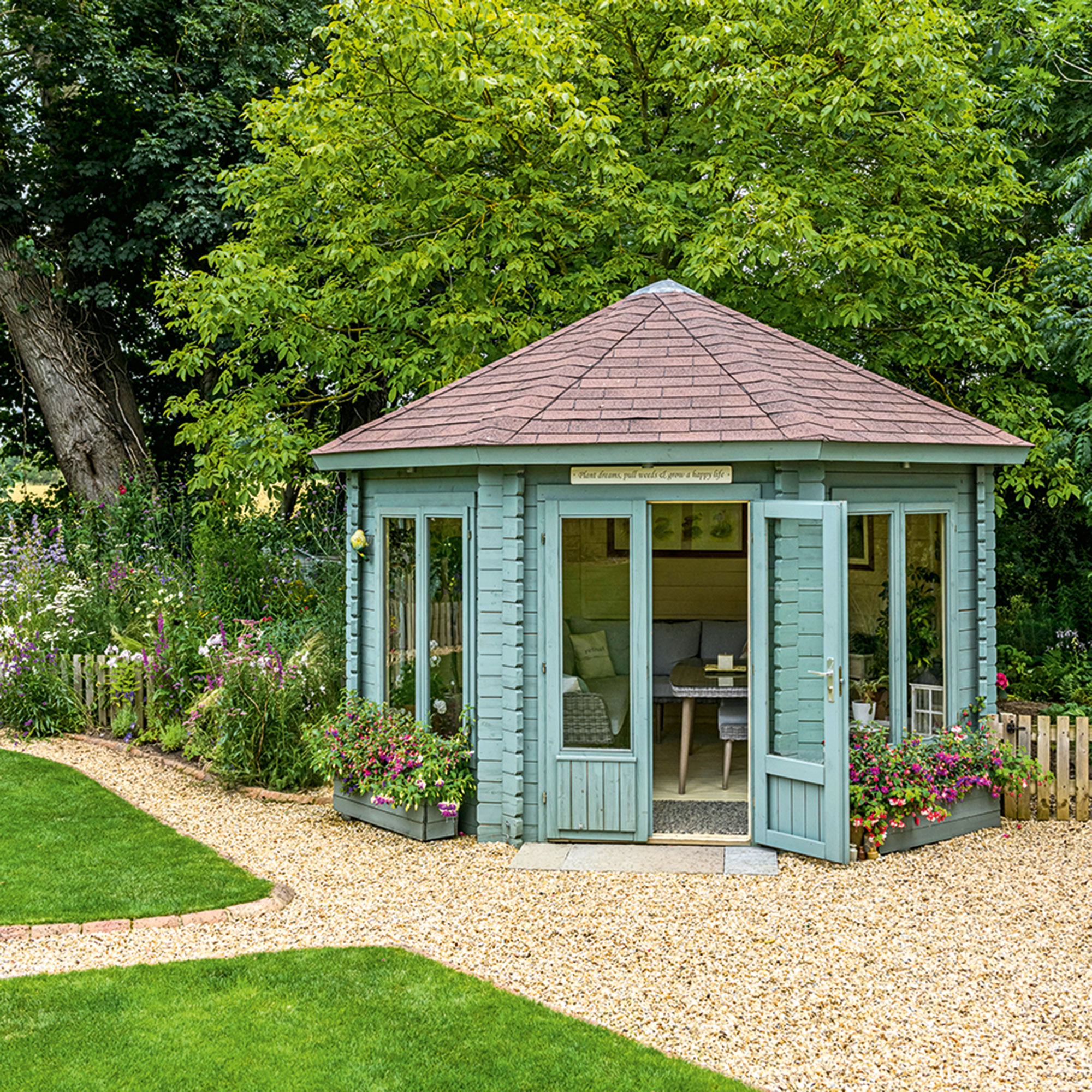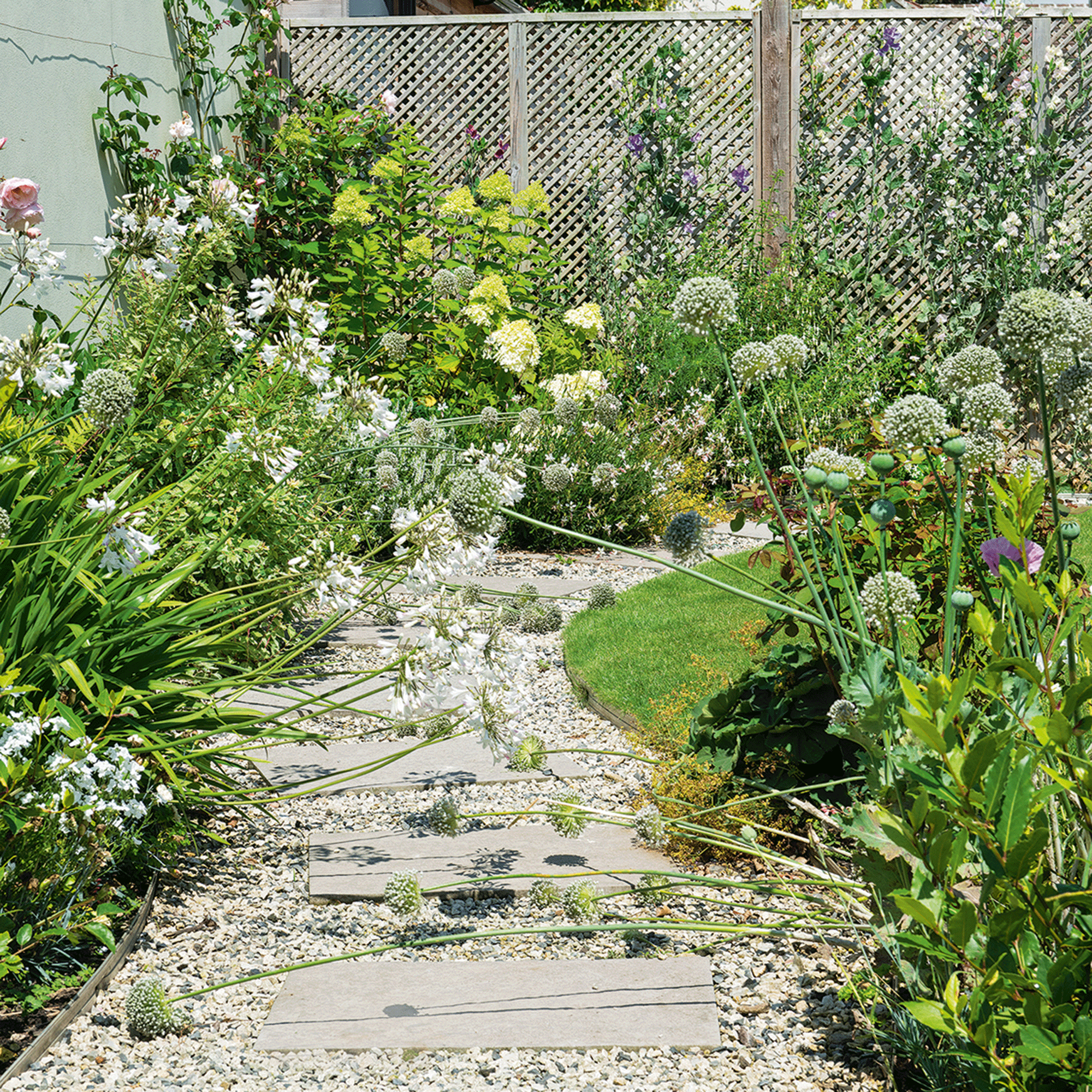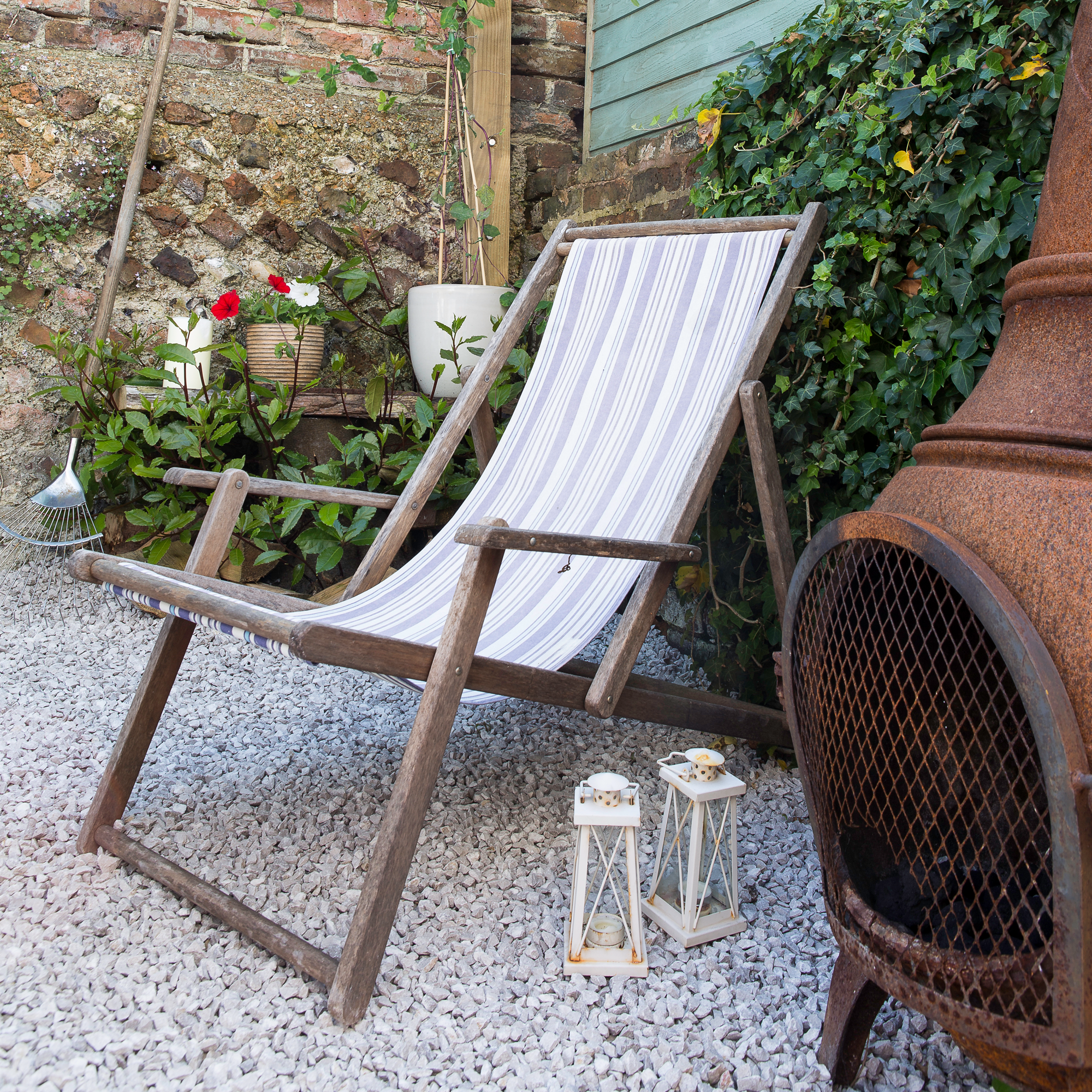How to get rid of weeds in gravel – an easy guide to remove unwanted plants
Learn how to deal with pesky weeds that have started to sprout up with the help of our expert tips


Many of us have probably opted for gravel over the years, in paths and driveways. It is low-maintenance to maintain, but if you have weeds growing in your gravel paths in spots you don't want you could do with learning how to get rid of gravel in weeds effectively.
Gravel garden ideas have emerged as a popular drought-tolerant and low-maintenance garden trend. While they have the added bonus of keeping most weeds at bay, sometimes there's no keeping an invasive plant out of your gravel.
So, we’ve asked the experts how to remove weeds from gravel so that they don't grow back. And thankfully there are several different methods for how to get rid of weeds that you can try.
Before we start we do want to clarify that not all weeds are necessarily a menace, some are beneficial for pollinators. However, if they are taking over your garden and other plants it is likely time to intervene.
How to remove weeds from gravel
Our guide will make sure you rid your gravel of these agricultural nuisances. Here's everything you need to know about how to remove weeds from gravel.

What causes weeds to grow in gravel?
‘Constant exposure to different weather conditions is the most common cause of weeds beginning to grow through gravel,’ according to Jamie Shipley, Gardening Expert and Managing Director of Hedges Direct.
‘Once the gravel has been down for a while and if the soil beneath is moist enough along with a lot of sunlight, it can be the start of many weeds beginning to make their way through the soil.’ So, this is why many weeds begin to sprout in the spring and summer, as the sun starts to make more of an appearance.
‘Freshly laid gravel doesn’t have anywhere for the weeds to grow, but as the gravel has time to settle, accumulate sediment or become displaced, weeds can then take root and grow,’ reveals horticultural expert Amber Noyes from Gardening Chores.
There are a few other factors that can cause weeds to grow in gravel. For example, the soil beneath the gravel can contain enough nutrients and moisture to allow for weed growth.
Weeds also, ‘produce seeds that can easily be dispersed by wind, water, and even animals, finding their way through gaps in the gravel into the soil below,’ says Steve Chilton, gardening and outdoors expert from LeisureBench.
It is, however, possible to get rid of any type of weed from your garden or outdoor space, as the experts will detail. But you will need a few things to hand before you get started.
What you'll need
- A weed puller/weeder; try this Magnusson Weed puller from B&Q
- A hand trowel; this Wood Handle Stainless Steel Hand Trowel from Wilko is a real bargain
- Weed killer; this Roundup Total Fast Action Weed Killer from Amazon is a great option
- Weed barrier fabric; this Yuzet Heavy Duty Weed Control Fabric Ground Cover from B&Q has several five star reviews
- A rake; try this Hawksmoor Carbon Steel Rake one from Toolstation
5 methods to remove weeds from gravel
Depending on the results that you’re looking for, some methods have ‘more of a guarantee of a long-term effect,’ says Jamie, whereas others, ‘you’ll have to keep repeating throughout the year.’
But here are the different options available to you.

1. Hand weeding
While weeding by hand can be quite time consuming, especially if you have a large area of gravel to contend with, it is still one of the most effective methods for getting rid of weeds.
The key is to remove each weed in its entirety. Jamie suggests, holding, ‘from the stem and gently remove the whole weed from the root system to make sure you have got it all out.’ If you simply remove what is above the surface, it won’t be long until the weed resprouts and you have to deal with it again.
You can go in with a hand trowel, corkscrew or a garden fork to get in and lever it out of the gravel – roots and all. If the stem snaps while you’re attempting this, you may need to dig in deeper with one of the aforementioned tools to make sure that you get right down to the roots, to remove them fully.
2. Weedkiller
If weeding by hand hasn't completely eradicated them, it may be time to take more drastic measures. Whenever you use a chemical weedkiller, you’ll want to do it sparingly as it can destroy everything around it – not just the weeds. So, take care to only treat the areas where you don’t want any plants or weeds to grow. You can also look out for sprays designed specifically to eradicate weeds, when you are shopping.
‘Glyphosate-based weed killers are effective at treating the most stubborn weeds and are best used while the plant is actively growing from April through to September,’ suggests Amber.

3. DIY weed spray
If you don’t fancy using a chemical-based weed killer, you can make your own natural weed spray at home using items you already have in your kitchen. One of the best DIY options uses a mixture of white vinegar and dish soap.
Amber recommends mixing, ‘4.5 litres of white vinegar with one tablespoon of dish soap and decanting this into a spray bottle.’
‘Pick a dry morning with no rain forecast and spray the problem areas of gravel with the mixture. A dry day is preferred as it will allow the solution more time to take effect rather than being washed away.’
‘Some hardy weeds might survive the first treatment, so repeat this step as required,’ she concludes.
4. Rock salt
Did you know that rock salt is actually incredibly effective at removing weeds? The salt works to dry the weeds out through desiccation and dehydration, which ultimately kills them.
‘However, it is important to be wary of this technique as the salt can stop anything from growing in a space for a long time,’ says Jamie. But if you’re simply dealing with weeds that have appeared through the gravel in your driveway or patio, this shouldn’t be too much of an issue.

5. Boiling water
This specific method could be worth trying out on new weeds that haven’t yet established a strong root system. First you’ll want to cut back any lush foliage to expose the weeds in question. Then you can pour the boiling water onto the weed or weeds from a low height, so that you reduce the risk of it splashing back onto you.
If you don’t mind making a few trips back and forward from your kitchen with your kettle, this could be another great option that doesn’t involve any chemicals or too much manual labour.
Finish by raking the gravel
Whatever method you choose, you’ll want to finish up by using a gravel rake to level the surface and remove any weed fragments that have been left behind. Raking also helps to expose any hidden weed seedlings that you might have missed, so you can get to work at removing them too.
FAQs
How do I permanently get rid of weeds from gravel?
‘Installing a weed barrier fabric is one of the most permanent ways to get rid of weeds from gravel,’ reveals Steve. Without this fabric, the likelihood that weeds will shoot back up is much greater than it is without it.
All you need to do is lay the fabric under the gravel and cover the complete area. ‘Overlap the edges and secure the fabric with landscape pins or staples. Trim any excess fabric as needed,’ Steve adds.
You’ll want to keep on top of any weed removal too, as and when you spot them. ‘As soon as you spot a weed, get rid of it before there quickly become more and more seeds and spores spread,’ he proposes.
Regularly raking your gravel to prevent any weeds from establishing themselves in the first place, is also key.
Why do weeds come back?
‘The seeds from weeds can be very hardy, and some can lay dormant for up to 30 years,' affirms Amber. Because of this, 'they can end up on gravel in various ways, including being blown in by the wind or tracked in on the feet of humans and wildlife, where they are then deposited.'
Sign up to our newsletter for style and decor inspiration, house makeovers, project advice and more.

Ellis Cochrane has been a Freelance Contributor for Ideal Home since 2023. Ellis has been writing about homes, interiors and gardens for four years now, with her also contributing to House Beautiful, Country Living, Expert Reviews, Real Homes and Stylist.